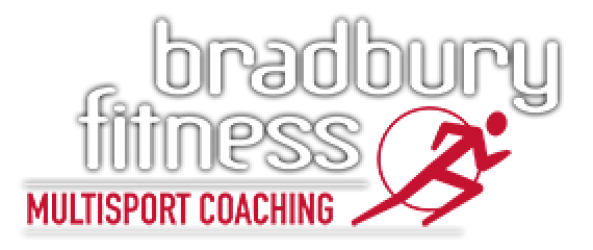“Why do I need a coach? What will a coach bring to the mix? How will they help me?” I’m asked these questions all the time and have my own answer…but the post below from one of my clients gives you an athlete’s perspective.
Albert Einstein once noted that the very definition of insanity is doing the same thing over and over again and expecting a different result. Yet many athletes do the same workouts week after week, year after year, and wonder why they don’t improve.
Excellence in endurance athletics isn’t about having a breakthrough day or hoping you can push through the pain. It’s about discipline and structured training, based on proven principles and scientific research. Athletes improve their performance because they prepare to improve.
Preparation is why if you’re serious about improving your performance, you should consider a hiring a coach.
A qualified coach will help you structure your training towards specific goals. He or she will work with you to plan your season, plan your schedule, and tailor a plan to help you achieve your goal – whether it’s qualifying for the world championships or making it across your first finish line.
A good coach is part scientist, part time management professional, part cheerleader, and part shrink. A coach will help apply the tested and proven principles of periodization, task-specfic stress and training, and planned rest and recovery into your plan in a way that works for your life and goals. A coach will encourage you to push yourself in the right ways and at the right times. He or she will help you develop a plan for race week and race day. And, importantly, your coach will help you work through the setbacks and disappointments that naturally come into any athlete’s training and race plan.
Most importantly, though, your coach will help apply the Goldilocks principle to your training – ensuring that it’s not too little or too much for what you’re trying to accomplish…but that it’s just right.
Working with a coach isn’t always easy for competitive athletes because it requires a leap of faith. Your coach will ask you to do things that are new, different, uncomfortable, and even counterintuitive. Rest more. Go slower so you can go faster. Lift weights. Do core work. Stretch. Cross train. Eat different foods. Think different thoughts. Do different things.
If you’re serious about changing the results of your training, you need to change your training. And, much as you would hire someone to install a new furnace because someone else knows more about how to do it than you probably do (you could probably figure it out…but why?!), you should consider hiring someone who knows how to train an athlete to make you faster, stronger, more focused, and more race ready.
Case in point: I hired my first coach in 2000. He made me go slower – much slower than I’d gone historically – for the base training period of the season. I hated it, but followed his plan – I was paying for it after all…might as well try it. The day of the Chicago Shamrock Shuffle I was scheduled to do a 90 minute aerobic run. I did my first hour as a slow run along the lakefront, and figured I’d do the last part of the run as a participant (not competitor) in the race, on a supported course, in a big group. Thirty seconds after the gun went off I threw caution to the wind and went hard instead of staying aerobic. Cruise through a race?! I PRed at 8K that day…after a 60 minute warm up. My coach was right. Going slower made me faster. I was hooked.
The following year I was 39 years old and training for my first Ironman. I had followed my coach’s plan to the letter. He had tapered me for one of my three “A” races (the Cleveland Triathlon), and at the swim start I felt like a well-trained racehorse coming out of the starting gate. I followed my coach’s plan in each of the three disciplines, and I was first in my age group in each. I finished first in my age group in all three events – a first. I was the fifth person across the line even though I was in the second wave. When the results were posted, I learned that I was the overall winner. At age 39.
I called my coach to thank him. “Congratulations” he said. “But it’s a team effort. I helped you do the right workouts. You actually did them. This really does work.”
It does. But it is a team effort. Your coach will help you plan your work. It’s up to you to work your plan, to have the mental and physical discipline to do the workouts, make the intervals, get the rest, and stick to the plan. Don’t do more because you feel great. Don’t do less because you feel tired. Don’t change the workout because you think you know better. Racehorses don’t do more or less than their trainers ask of them. They rely upon their trainers to get them ready the right way. It’s why they run well. It’s the same way with a coached athlete.
It’s a leap of faith, but it works.
I took a few years off from being “serious” and then decided that as I approached a key age milestone it was time to play hard again. Last year, I hired Mary Bradbury. At the age of 48 I put up my third best time ever at Olympic distance. I was back on the podium.
It works.
As I look ahead to the 2012 season, I know that Mary knows precisely what I want to accomplish, that she has worked within my time, age, and life constraints to put together a plan that will help me get there, and that she’ll encourage me to do whatever I can – with her guidance – to achieve those goals. They’re ambitious. They require work and discipline. And I have every bit of confidence that if I follow the plan, I can hit them.
Tired of getting what you’ve been getting? Want to get better? Consider professional help. Hire a coach.
-Stephen P. Ban

